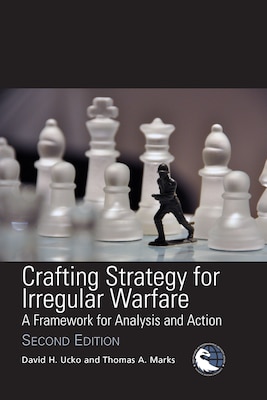David H. Ucko and Thomas A.

The 2018 U.S. National Defense Strategy made headlines by officially downgrading terrorism as a national security priority in favor of “inter-state strategic competition.” Many interpreted the statement as signifying a return to “conventional combat,” yet a closer reading suggests that even state-based competition is likely to be “irregular.” Much like insurgent adversaries, revisionist states blend separate lines of effort to offset military weakness, weaponize narratives to ease strategic progress, and exploit social and political contradictions to undermine and divide target societies. This approach is appealing because it allows for gains that, although incremental, are less likely to face backlash and are therefore more sustainable. Indeed, it was precisely when Russia abandoned this playbook, through its conventional invasion of Ukraine in February 2022, that it succeeded in mobilizing significant local and global resistance, greatly complicating its military and political effort. Thus, for several reasons, irregular warfare is likely to be the strategy of choice for states seeking to contest international order.
The United States, and the West, struggle to understand and respond to irregular warfare, whether by states or nonstate actors. Attempts to master the art have generated much new jargon, ranging from “hybrid war” to “the gray zone,” and most recently “integrated deterrence.” The terminology belies a struggle to overcome entrenched presumptions about war—a confusion that generates cognitive friction with implications for strategy. To inform a better approach, this monograph presents an analytical framework to assess and respond to irregular threats. The framework is based on the pedagogical approach of the College of International Security Affairs (CISA) within the National Defense University (NDU), the only U.S. irregular warfare college. It is designed to cut through the analytical ambiguities of irregular warfare and map such strategies to design an effective counter. Though an analytical framework is no panacea for the malaise facing Western strategy, it is an indispensable starting point for all that must follow.
No comments:
Post a Comment